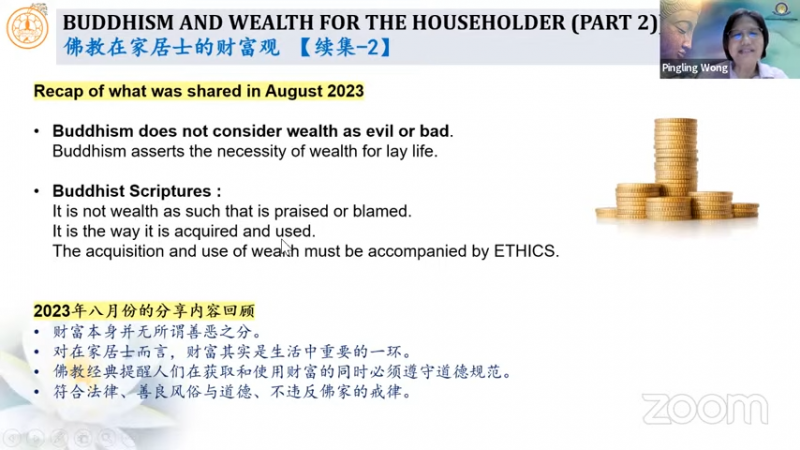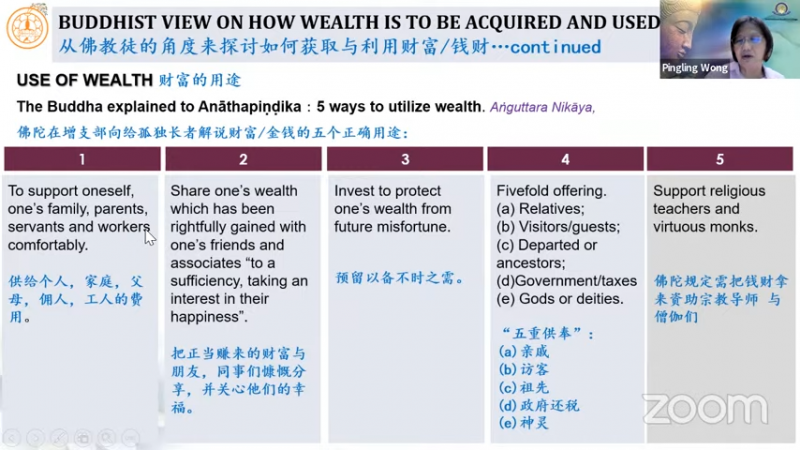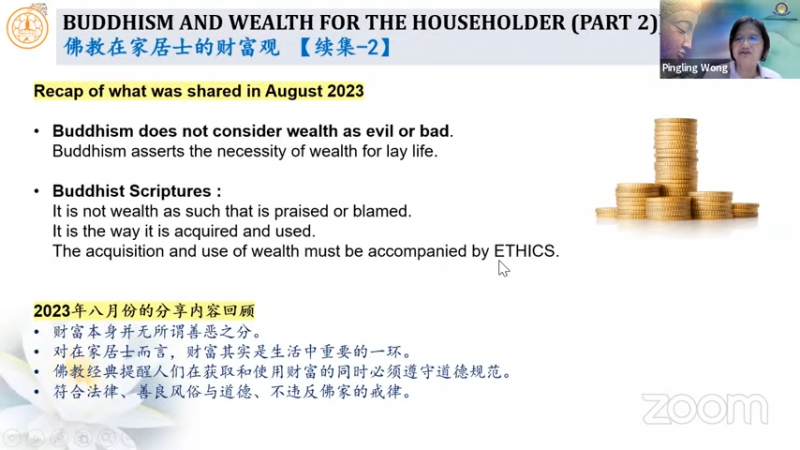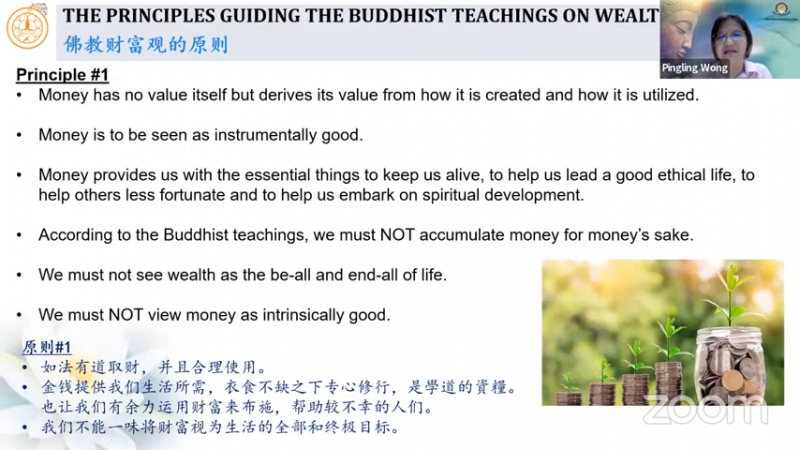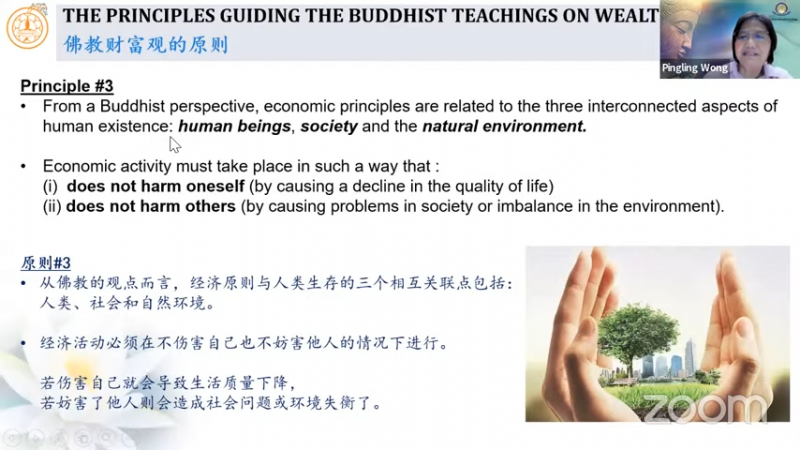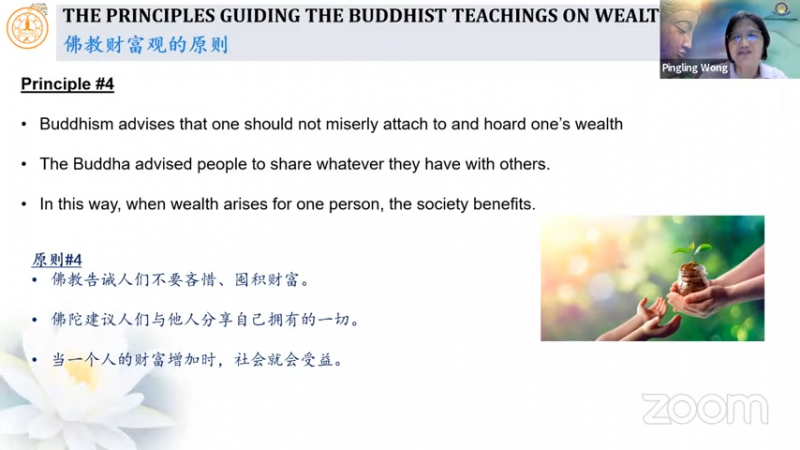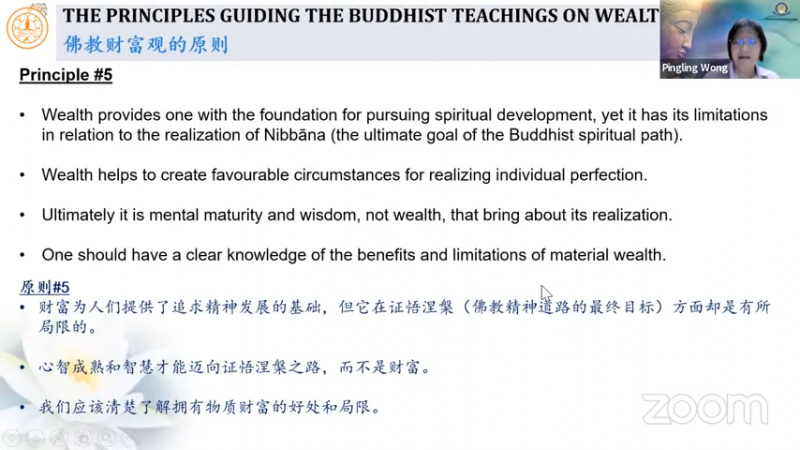Submitted by aier on

Than Hsiang's Pu Men Pin Online Gong Xiu Dharma Sharing (19/01/2024)
Teaching Assistant of IBC, Sis Wong Ping Ling sharing "Buddhism and Wealth for the Householder (Part 2)"
Buddhism does not consider wealth as evil or bad.
Buddhism asserts the necessity of wealth for lay life.
Buddhist Scriptures said:
It is not wealth as such that is praised or blamed.
It is the way it is acquired and used.
The acquisition and use of weath must be accompanied by ETHICS.
BUDDHIST VIEW ON HOW WEALTH IS TO BE ACQUIRED AND USED
USE OF WEALTH
The Buddha explained to Anathapindika : 5 ways to utilize wealth.
1.To support oneself, one's family, parents, servants and workers comfortably.
2. Share one's wealth which has been rightfully gained with one's friends and associates "to a sufficiency, taking an interest in their happiness".
3. Invest to protect one's wealth from future misfortune.
4.Fivefold offering: (a) Relatives; (b) Visitors/guests; (c) Departed or ancestors; (d)Government/taxes; (e) Gods or deities.
5.Support religious teachers andvirtuous monks.
Principle #1
• Money has no value itself but derives its value from how it is created and how it is utilized.
Money is to be seen as instrumentally good.
Money provides us with the essential things to keep us alive, to help us lead a good ethical life, to
help others less fortunate and to help us embark on spiritual development.
According to the Buddhist teachings, we must NOT accumulate money for money's sake.
We must not see wealth as the be-all and end-all of life.
We must NOT view money as intrinsically good.
Principle #2
• One should NOT have a GREEDY attitude towards Wealth.
Buddhism encourages the adaptation of the Middle Way - the right amount and knowing moderation.
In Buddhist teachings, knowing moderation is referred to as mattaññutā. Well-being &
satisfaction. Buddhism teaches us to have moderate consumption leading to well-being.
Principle #3
• From a Buddhist perspective, economic principles are related to the three interconnected aspects of human existence: human beings, society and the natural environment.
• Economic activity must take place in such a way that:
(i) does not harm oneself (by causing a decline in the quality of life)
(ii) does not harm others (by causing problems in society or imbalance in the environment).
Principle #4
• Buddhism advises that one should not miserly attach to and hoard one's wealth
• The Buddha advised people to share whatever they have with others.
· In this way, when wealth arises for one person, the society benefits.
Principle #5
• Wealth provides one with the foundation for pursuing spiritual development, yet it has its limitations in relation to the realization of Nibbana (the ultimate goal of the Buddhist spiritual path).
•Wealth helps to create favourable circumstances for realizing individual perfection.
Ultimately it is mental maturity and wisdom, not wealth, that bring about its realization.
•One should have a clear knowledge of the benefits and limitations of material wealth.
For more information, please browse https://www.youtube.com/watch?v=DEOXKQKLKQQ
Spread the Buddha's teachings to guide more people to study Buddhism.
Continue diligently in the path studying the Buddha's teachings and listening to the Dharma.
Follow us on:
https://linktr.ee/thanhsiang


